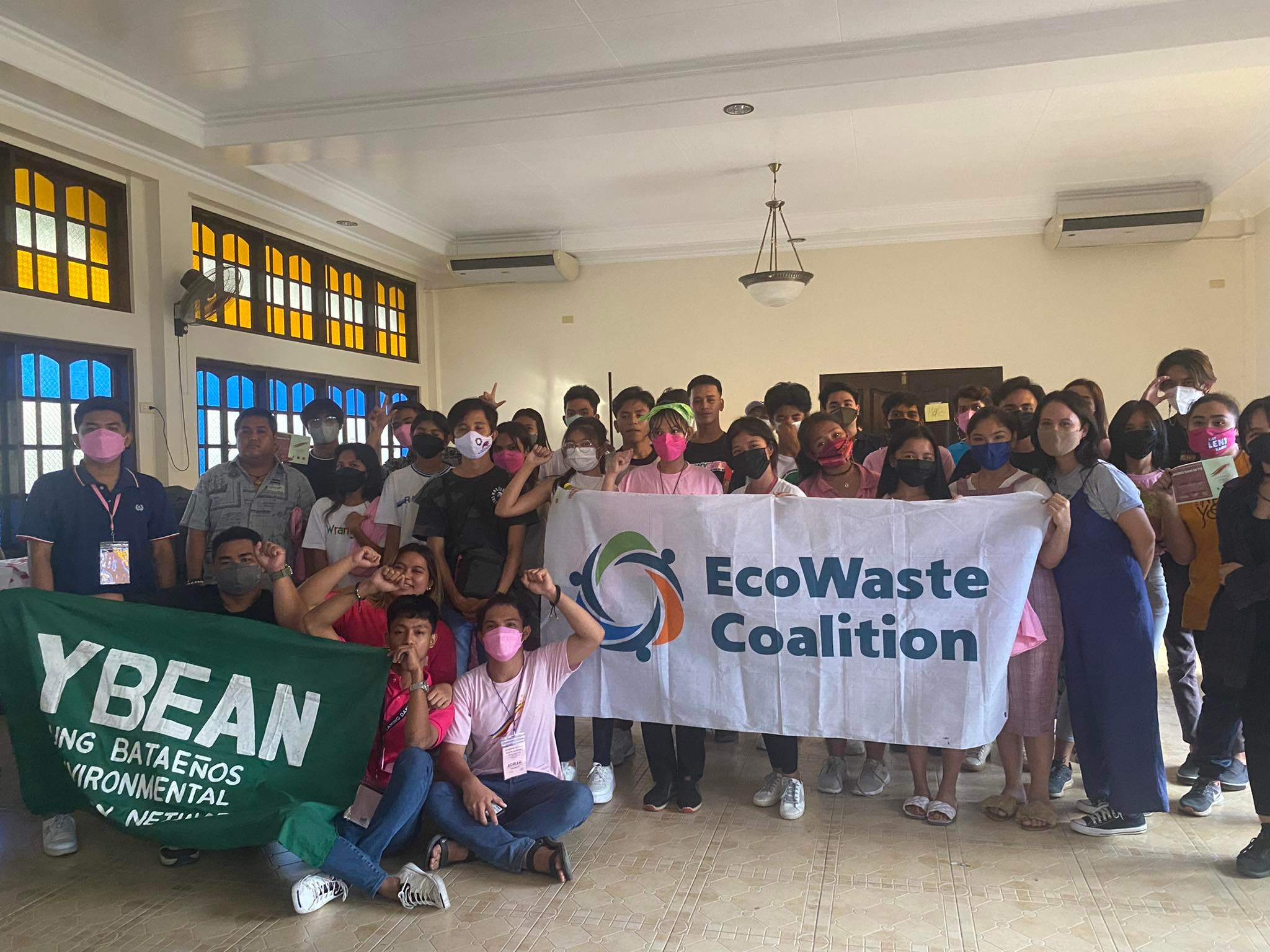Young voters in Bataan call on poll bets to prioritize the environment

Members of Young Bataenos for Environmental Advocacy Network (YBEAN), EcoWaste Coalition, and other advocacy groups conduct a voter education forum in Bataan, where they urge local and national candidates to prioritize programs for the protection of the environment. | Contributed photo
OLONGAPO CITY––Youth and environmental groups have urged candidates to prioritize the green agenda in their electoral platforms in the May 9 polls.
Jochelle Magracia of the Young Bataenos for Environmental Advocacy Network (YBEAN), expressed in a statement Monday, March 28, her group’s support for pro-environment candidates.
“With more than 60 million young voters, we wish to ‘swing the vote’ towards a green and sustainable future without incineration, without plastic pollution, and without the climate crisis,’’ Magracia said.
YBEAN had recently organized a voter education forum with other groups such as the lterpol-Youth, Nuclear, and Coal-Free Bataan Movement and EcoWaste Coalition.
The event, held in Balanga City in Bataan province, was attended by 100 young voters.
Article continues after this advertisement“We clamor for system change, especially a green development paradigm. Economic growth can no longer be at the expense of the environment, but that the economy must be directed towards sustained progress that prioritizes planetary and people’s health,” Magracia said.
Article continues after this advertisementYBEAN cited a report from the Commission on Elections that showed more than half of the 65.7 million voters are between 18 and 41 years old, making the youth vote “critical” for candidates.
For environment activist Derek Cabe of the Nuclear and Coal-Free Bataan Movement, the “Double Trouble,” or the return of dirty energy and the lack of a national ban on single-use plastic, were “bad for the environment and bad for the health of the people.”
“Let’s not get distracted by the electoral fanfare. Instead, we should look at the candidates’ records, positions, and platforms on human rights, democracy, the environment – their green agenda, and how they address the persistent problems with plastic, dirty energy, and the like,” Cabe said.
According to the EcoWaste Coalition, the lack of a national policy or plan to complement the nearly 500 local ordinances on single-use plastics (SUP) is “a major flaw.”
“While the House passed the SUP ban last August, the Senate has yet to follow suit. They are quick fixes and false solutions that only address plastic pollution downstream,” the group said.